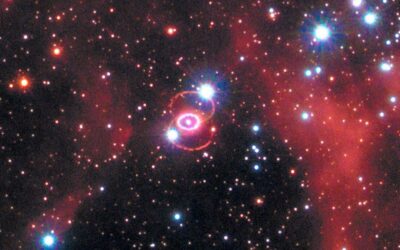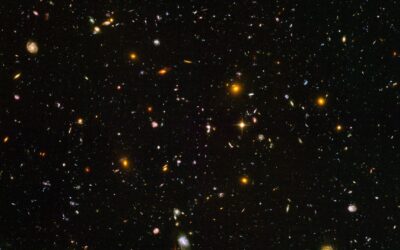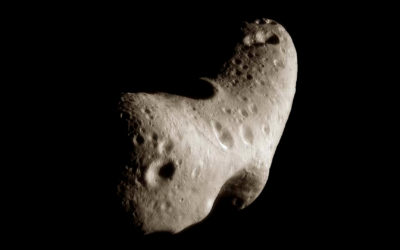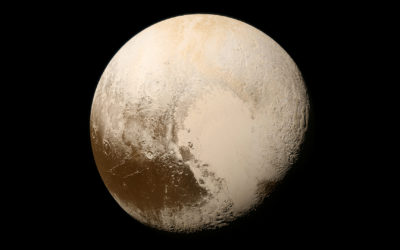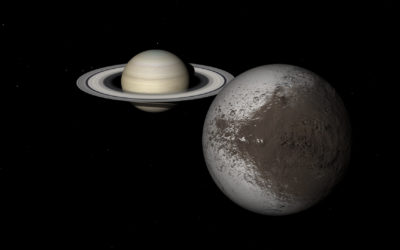ARTICLE ARCHIVES

Distant Starlight in a Young Universe: Attempted Solutions
In this article we will continue to explore additional proposed solutions to distant starlight. Creation astronomers and physicists do not currently have a consensus position on the solution to this perceived problem. Some creationists are bothered by this fact, but it is the nature of science that we don’t know everything and therefore we make hypotheses to be tested. Furthermore, science advances only when multiple models are presented and then systematically eliminated on the basis of observations until only the most probable model remains. In this spirit, I will here present some of the positions held by creation scientists, along with the strengths and weaknesses of such proposals.
Distant Starlight in a Young Universe: An Introduction
Given the biblical timescale, that God created the universe roughly 6000 years ago, how are we able to see stars and galaxies that are billions of light-years away? If light takes one year to traverse a distance of one light year (about 5.88 trillion miles), shouldn’t light from a galaxy that is ten billion light years away take ten billion years to reach us? And we can see such galaxies, implying that the light has arrived. Does this imply that the universe is at least 10 billion years old?
How do I Know that I Know? – a Response (Part 2)
In the previous article, we have been addressing Dr. Richard Howe’s response to my question, “How does he know that he’s not in the ‘Matrix’ and that his sensory experiences have nothing to do with the real world?” This question is in light of the epistemology...
How do I Know that I Know? – a Response (Part 1)
Having had several years to think about the conundrum, Howe has provided a response to my question. He posted an article on his blog on June 18, 2020 entitled “How do I know that I know?” I appreciate the effort and I will respond here in the same iron-sharpening-iron spirit. Has Howe provided a satisfactory answer to the epistemological challenge? His article is in purple text, with my comments in black.
Supernatural Selection
What does it mean for something to be supernatural? We might think of the parting of the Red Sea, Jesus turning water into wine, the resurrection of Lazarus, or even the creation of the universe as supernatural events. These are all great examples of God’s power. But is that what makes them supernatural? Isn’t the normal operation of the universe also an example of God’s power? After all, the universe continues to exist only because God upholds it by the expression of His power (Hebrews 1:3).
Presuppositional Apologetics
Apologetics is the defense of the Christian Faith. According to 1 Peter 3:15, when unbelievers ask a Christian to give an explanation for why he or she believes in Christ, the Christian should be ready to give a rational defense of the Christian worldview. The Greek word translated as “defense” or “answer” in this verse is ‘apologia,’ which is where we get the term apologetics. However, Christians often disagree on what is the best way of defending the faith. Consequently, there are several different methods of apologetics.
God vs. Government
Many people have the impression that the Church is God’s institution and that the government is not. Consequently, the Church must abide by the Bible in all matters, but the government must stay away from religious matters. After all, isn’t there a separation of Church and state? In reality, both the Church and the state are God’s institutions and both are morally obligated to abide by biblical principles. When a government functions in the way God has specified, it is a blessing to all the people. But a government that will not follow biblical principles inevitably becomes a tyrannical “beast” that oppresses its own citizens.
Comets, Centaurs, and TNOs
Some of the smallest members of our solar system have been known since antiquity. Comets were very mysterious objects to the ancient world. They had an unusual “hairy” appearance.[1] Unlike planets, comets seemed to follow no predictable path. They appeared at an unpredictable time, brightened and moved in unpredictable ways, and faded into oblivion. Many cultures considered comets to be omens.
Worlds of Creation: Asteroids
On January 1, 1801, the Italian astronomer Giuseppe Piazzi discovered a new ‘planet’ in between the orbits of Mars and Jupiter. What a great way to bring in the new year! Named Ceres, this new world was far smaller than the other seven planets (Neptune had not yet been discovered). Even the most powerful telescopes of the time could not discern any sizeable disk; the object resembled a star. Piazzi initially thought that Ceres might be a comet. The central nucleus of a comet indeed looks point-like in a telescope. But Ceres was not surrounded by a coma – a cloud that typically surrounds the nucleus of a comet. Nor did it have a tail. Further observations revealed a fairly circular orbit, typical of a planet but unlike any comet.
The Biblical Solution to Racism
It seems that there has been a resurgence of racism in the United States. As Christians, we are very concerned about this because we believe that all people are made in the image of God and therefore deserve dignity, respect, and fair treatment regardless of ethnicity. The Bible condemns racism as sin, and therefore we must stand against it, and must warn people of organizations that promote what God forbids.
Worlds of Creation: Pluto – Part 2
The New Horizons mission would forever change the way we think about this little world. But in the same year that New Horizons was launched, the International Astronomical Union voted to reclassify Pluto as a dwarf planet. What exactly prompted this demotion of Pluto?
Worlds of Creation: Pluto – Part 1
When Pluto was discovered in 1930, it was immediately accepted as the ninth planet. Seventy-six years later, the International Astronomical Union decided that Pluto should no longer be considered a planet, and reclassified it as a “dwarf planet.” What motivated this reclassification? And how exactly is a planet defined? Regardless of how we choose to classify it, Pluto is a wonderful creation and one that does not fit the secular narrative. The discovery and early investigation of this dwarf planet is a fascinating part of history.
Worlds of Creation: Neptune
The outermost planet of our solar system is a world of wonder and mystery. Neptune is a virtual twin to Uranus, similar in size and color. But its differences are fascinating and challenge secular thinking.
Worlds of Creation: Uranus
The ancient world knew of planets – the five wandering stars that moved with respect to the background stars. The invention of the telescope allowed Galileo to discover that Jupiter had moons – proving that not everything orbits Earth. This led to the...
Worlds of Creation: The Moons of Saturn
Saturn has 82 known moons – more than any other planet at the publication time of this article. Of these, twenty were discovered in the last year. Most are just a few miles across. But the larger ones are some of the most fascinating moons of the solar system.
